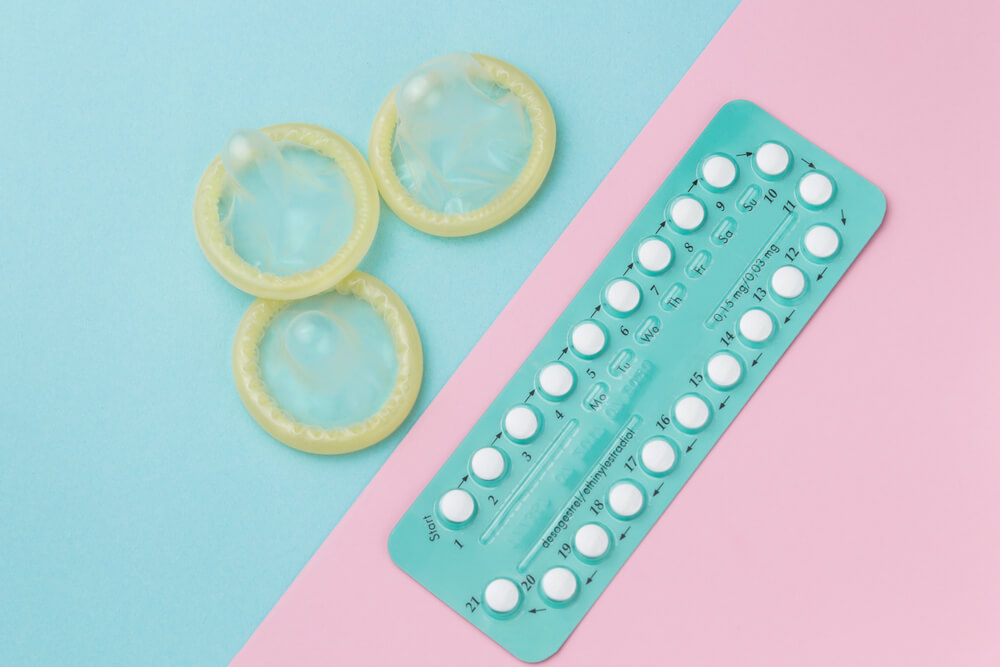Currently, 65.3% of women in the United States use some form of contraception.
But what is the best birth control? Well, some women claim it’s the pill, but this is up to debate. All in all, these statistics are understandable – at the end of the day, contraception is one of the simplest ways to take your life into your own hands and live it according to your rules.
However, there are a lot of birth control options women can choose from, making it tricky to pick the most suitable one for you. Your first step will be to consult a reliable birth control specialist for the most accurate recommendations according to your specific requirements.
That being said, it’s also helpful to educate yourself on the different birth control options available to you. So, we’ve rounded up the most popular ones for you in this article. Below, you’ll get to read about non-hormonal birth control, the best contraceptive for long-term results, and much more.
Let’s jump right into it.
What Does “Birth Control” Refer To?

Before looking at the top five most popular forms of birth control, let’s quickly go through the term “birth control.”
In the simplest terms, birth control helps prevent an undesired pregnancy. There are two key types of contraception: hormonal and non-hormonal birth control. Here are some examples from both of these categories.
Hormonal methods of birth control:
- Intrauterine devices (IUD)
- Implants
- Injections
- Vaginal rings
- Skin patches
- Pills
Non-hormonal birth control methods:
- Diaphragm
- Cervical cap
- Spermicide
- Female and male condoms
- Sponges
- ParaGard
- Sterilization
- The withdrawal method
Whether you’ll choose to use hormonal or non-hormonal contraception depends on you and your specific situation. Most importantly, it’s best you consult with a trained professional for expert advice on which contraceptive method is the most suitable for you.
How to Figure Out the Best Birth Control for Me?
Besides listing contraception as hormonal and non-hormonal, there are a few different categories of birth control out there. These include short-acting hormonal contraception, long-term birth control, permanent contraception, emergency contraception, and one-time “barrier” contraception. Here are some critical facts you’ll need to know about each of these categories.
Short-Acting Hormonal Birth Control
This is the best birth control category for many women because you can get pregnant again once you stop using these. For example, one of the most popular forms of contraception, the birth control pill or “the Pill,” is around 91% effective at preventing unwanted pregnancy.
Still, once you stop using it and your menstrual cycle regulates, you’ll likely be able to have a baby. Many women love this pill because it offers a highly effective, short-term solution.
However, when you’re just starting to use short-acting hormonal contraception, you may experience mild to more severe side effects. For example, some women notice bleeding or spotting between periods, nausea, sore breasts, headaches, and mood swings when it comes to the contraceptive pill. Luckily, these adverse effects usually go away after around 2 to 3 months.
On the positive side, short-acting hormonal contraception also has plenty of benefits. Namely, women claim to feel less period pain, flow, and frequency. Moreover, the pill helps some women clean up their acne and regulate their mood.
That being said, you’ll need to consult a professional like Konstantin Nikitin for the best type of short-acting hormonal birth control. This way, you’ll get expert advice and guidance.
Long-Term Birth Control
This type of contraception is excellent if you want a highly effective, lasting contraceptive method with minimal maintenance. You can choose between implants (typically inserted in the arm) and IUDs or intrauterine devices (inserted in the uterus).
Not only is long-term birth control 99% effective at unwanted pregnancy prevention, but it’ll work for up to 10 years. Of course, the exact year will depend on the specific method of contraception.
Permanent Birth Control Methods
If you want a more permanent solution (because maybe you’ve decided to stay childless), you can get a vasectomy (for men) or a tubal ligation (for women). These are usually simple surgical procedures that are 100% effective. You can expect it to take a few days when it comes to recovery.
Permanent birth control won’t affect sexual function. Also, if you decide to do tubal ligation, you’ll still have your menstrual cycle. In a nutshell, nothing will change in your everyday life, except the chance of getting pregnant will be zero.
It’s also important to mention that you can get the procedure reversed (if you change your mind about having children). However, you might not be able to return your fertility.
So, is permanent birth control a good idea? Well, the answer depends on you. If you’ve 100% made up your mind about staying child-free, it’s a good solution for contraception. However, you’ll need to take the fertility risks in mind if you ever want to reverse it.
Emergency Contraception Methods
If you had sexual intercourse without using contraception or an accident (for instance, the condom breaks), you might want to consider emergency birth control. You can solve the problem by choosing between two pill types or a copper IUD.
Usually, most pharmacies won’t need a prescription from you, but this varies from one country to the next. One of the pills is “Plan B,” while the other is “Ella.” “Ella” is a better option if you want to prevent unwanted pregnancy up to five days post sexual intercourse.
As for Copper IUDs, they’re nearly 100% effective at preventing pregnancy when inserted within five days after sex, but you’ll need to see your healthcare professional.
One-Time Barrier Contraception
Overall, the most popular non-hormonal birth control is the condom. When you use it properly, it will have a 98% effectiveness rate. Moreover, one of the most significant perks of using a good quality condom is protecting you from sexually-transmitted diseases such as chlamydia, trichomoniasis, and gonorrhea.
On the downside, condoms are ineffective against genital warts, herpes, and syphilis.
Popular Birth Control Alternatives

The “pull out method” or “withdrawal” is a popular alternative to birth control and possibly the riskiest one we’ve mentioned. Essentially, the “pull out method” involves the man taking his penis out of the woman’s vagina before ejaculation.
This way, there’s a decent chance of unwanted pregnancy. According to the numbers, four end up pregnant in every 100 individuals who use birth control alternatives like withdrawal. In percentages, this method works around 78% of the time.
Another popular birth control alternative is menstrual cycle tracking. This is a very unreliable form of natural contraception because menstrual cycles are not always accurate. You can use this method by tracking your ovulation and checking your fertile window to decrease the chance of pregnancy every month.
All in all, if you’re interested in any birth control alternatives, consult a specialist first.
Conclusion
As you can see, there are many birth control options you can choose from, depending on your preferences and your needs. No matter which one you choose, make sure to get tested regularly to ensure you and your partner are STD-free and safe. Above all, enjoy.
Book Your Appointment Now
As we’ve mentioned, you’ll want to consult with a trusted healthcare professional for the most expert advice on which birth control is the best choice for you. Don’t hesitate; book your appointment today and feel safe every time with your loved one.


